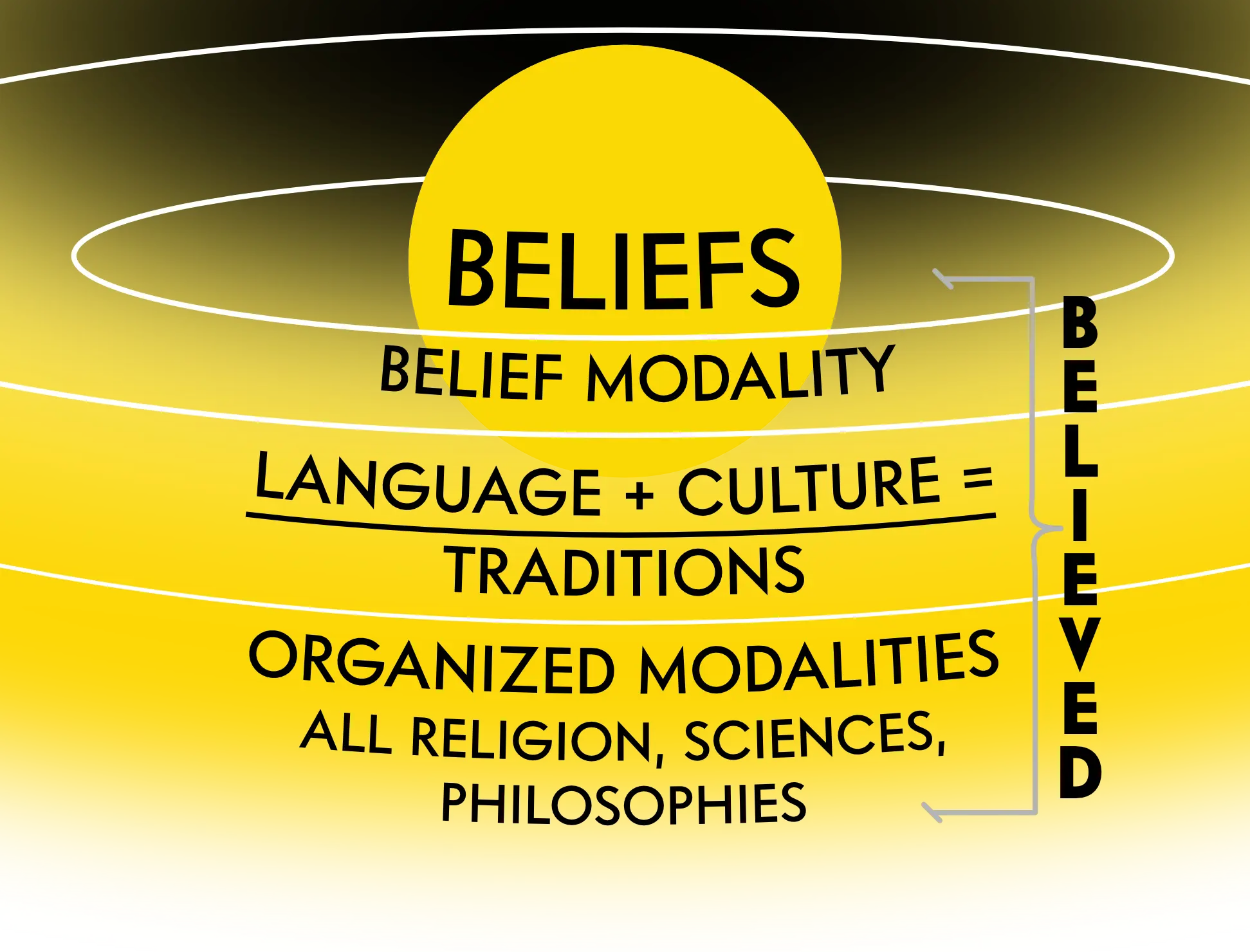Podcast #2: Epigenetics
Figuring out our epigenetics is a crucial first step in understanding our dominant quantum energetic states, also known as beliefs, which determines how we feel, think, and act, creating an intrapersonal reality that is unique to our family tree.
Listen to the Podcast #2 Epigenetics
Transcript: Podcast #2 Epigenetics
Figuring out our epigenetics is a crucial first step in understanding our dominant quantum energetic states, also known as beliefs, which determines how we feel, think, and act, creating an intrapersonal reality that is unique to our family tree.
I use 'beliefs' and 'quantum states' interchangeably to illustrate that I'm talking about the same thing in different ways. Beliefs are mental constructs, quantum states are physical experiences. It makes no sense to separate them any more than it does to separate the mind from the body.
Our whole lives we've done nothing but believe. It's our default setting. Our beliefs are biological, energetic expressions of DNA. Each one of us is born with beliefs that predate our birth by hundreds of years.
Beliefs are stored in our DNA and transferred by way of our grandmother's pregnancy. The way our grandparents treated each other, treated others, and how they responded to stressors in life, all of that was transferred to their grandchildren by way of our grandmother's pregnancy when our mother developed all of the eggs she was ever going to have.
We each express our quantum state-DNA beliefs scientifically known as epigenetics-from the moment of birth by way of our feelings. As we develop, our quantum states reinforce by the way we are treated by family and society. Only later are we able to articulate our feelings, label them and try to fit them into external social modalities.
Only the expression of DNA can be modified, and it's done by choice. You can modify another human's quantum state by the way you treat them, simultaneously modifying yours.
This quantum probability is the primary attribute of the ginormous power that we each possess. We can choose to express, and thereby create positive or negative quantum states.
How you feel about what I've just said reflects your quantum state, which is exclusively intrapersonal in nature, and modified to various degrees by ways of thinking (external modalities) that you learned.
Spirituality vs Religion, aka Intrapersonal vs External
The oldest epigenetic is commonly known as a 'belief in God' but that is just an external label that we learned along the way that blinded us to our power. In fact, if you were to read the first 3 chapters of Genesis objectively, you might perceive beliefs as being your super power.
Most of us won't though, because external modalities known as 'religion' have co-opted the truths hidden in plain view for so long that they have shut down our intrapersonal quantum state. Believing what religion says about you is disempowering, akin to pointing a spiritual EMP-electromagnetic pulse-at your source of power, aka your capacity to choose what quantum states you want to live in.
What this boils down to then is being able to distinguish between intrapersonal quantum states we call 'spirituality' and organized external belief systems called 'religion'. Intrapersonal quantum states are mutually exclusive to organized modalities and are far more powerful.
The following infographic illustrates beliefs/quantum state as the Sun around which everything else orbits. The first orbital plane is our belief modality which orbits in conjunction with the language and cultural environment in which we are born into and live. Next, those orbit in conjunction with the third orbital plane of organized modal belief systems consisting of religions and sciences.
The moment we believe in anything external to our selves binds our intrapersonal quantum states to that external modality's belief system. Thus, an expert on religion isn't an expert on intrapersonal quantum states because the external religion modality captures and overrides the intrapersonal state.

External modal beliefs are transactional by nature of being organized for the benefit of the modality. They can only exist if one believes them, and that belief comes at the expense of individual beliefs which are by their nature dispositional.
Genesis chapter 3 describes the intrapersonal experience of being captured by an external modality. Over the course of my life I've heard or read many times "do not take the Bible literally" and now I find that that's exactly what organized modalities have done in order to induce belief in their modality.
Here's my take on Genesis 3. A snake tells Eve that she won't die if she eats the fruit of the tree of knowledge of good and evil. In fact, she will be like God.
Death? A talking snake? The tree of knowledge of good and evil? Like God?Why in the world would anyone take that literally?
At face value, Eve didn't believe she was like God and ate the apple.
Read what happens next: she felt naked and afraid. Sensing a disturbance in the Force, God asks Eve 'where are you?' and she replies with 'I was naked so I hid myself'. The question is better asked as 'Where are you in relation to your previous quantum state when everything was just peachy?'
Then God asks, 'Who told you that you were naked?'
Believing anything that an external source tells you about yourself always leads to feeling insecure about your identity as expressed by your own gifts. That feeling self-reinforces instantaneously, creating feelings, thoughts, and actions in that order, which themselves create more self-reinforcing feelings, thoughts, and actions.
I see this pattern repeated daily in self and others I know.
In Podcast #3 I discuss more about modal impact on one's intrapersonal quantum states known as beliefs.